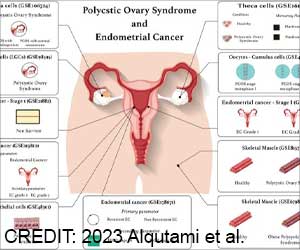,” said Professor Megan Galbally, Director of the Centre for Women’s and Children’s Mental Health at Monash University’s School of Clinical Sciences, in Melbourne, Australia.
Assessment measures used outside of pregnancy, such as the Eating Disorder Inventory, or the reliance on body mass index, have been shown to have limited validity in pregnancy.
Research into managing the health of pregnant women, in general, has highlighted the importance of maternal antenatal nutrition, pregnancy weight gain, and the infant’s birth weight as critical risk factors and vital intervention points for improving lifelong health including for areas such as heart disease, diabetes, and obesity.
According to the study authors, anorexia nervosa might affect obstetric and neonatal outcomes through the low-calorie intake, nutritional and vitamin deficiencies, stress, fasting, low body mass, and problems with the function of the placenta.
Additionally, risks from untreated or undertreated anorexia nervosa in pregnancy include psychological and psychosocial risks, including perinatal depression and anxiety.
The management of anorexia nervosa requires a multidisciplinary team approach with expertise across mental health, specialist medical care, and dietetics at a minimum.
The key experts include obstetricians (particularly experts who manage high-risk pregnancies), physicians with pregnancy expertise, dieticians who also have expertise in pregnancy nutrition requirements, pediatricians, and mental health clinicians with perinatal expertise.
Although many of the principles developed for the management of anorexia nervosa in adults are applicable in pregnancy, they require expert modification and adaptation to the substantial physiological, psychological, and social changes in pregnancy, and fetal growth and wellbeing should also be taken into consideration.
Source: Medindia



